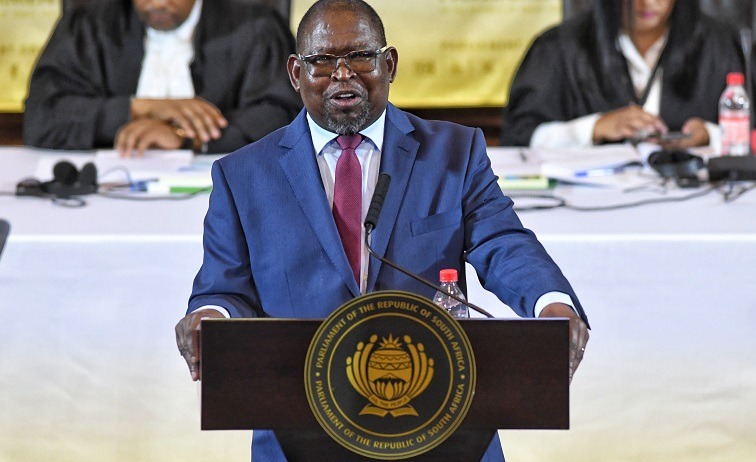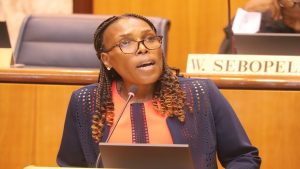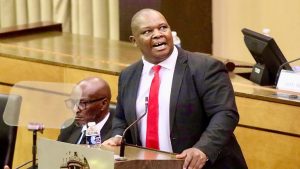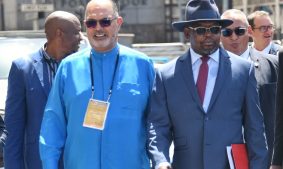The 2024 National Budget was presented against the backdrop of a tough economic environment of weak growth, reduced revenue collection and increasing spending demands.
Finance Minister Enoch Godongwana says this year’s budget aims to strike a balance between urgent demands and the sustainability of public finances.
Government debt remains a challenge on the back of weak revenue collection caused by the structural constraints leading to reduced company profitability and therefore less revenue.
Government expects the local economy to grow at 1. 3 % this year, and it admits, this level of growth is far below what’s needed to address the high unemployment and poverty rates.
It blames the power cuts, logistics challenges as well as the high inflation environment for the weakness. Unemployment is expected to remain elevated, with the low investor confidence hindering investments that could be creating jobs.
“We have embarked on a broad structural reform agenda that aims to address the challenges that have held back our growth. This agenda has included areas like electricity, logistics, water, telecommunications and visa reforms. The budget review details the good progress that has been made in these areas over the past few years,” says Godongwana.
Revenue collection is projected lower by just over R56 billion, as a result of reduced corporate income tax and value added tax. This is because of the lower profitability in many economic sectors especially mining, followed by manufacturing, testament to the electricity and logistics challenges the economy is facing.
Debt remains a headache with National Treasury saying government debt is expected to increase on the back of lower revenue collection and higher spending.
Gross loan debt as a percentage of GDP is now expected at 74.1%. It is lower than the estimates in the October Mid Term Budget Policy Statement because of the distribution from the Gold and Foreign Exchange Contingency Reserve Account from the Reserve Bank giving government R150 billion over the medium term.
Contingent liabilities from the struggling state-owned companies remain a risk with approved guarantees to State Owned Companies expected to increase from R33 billion to just over R500 billion, the majority of the exposure being from Eskom.
Currently, 20c of every R1 collected goes towards servicing debt. Government spending increases to almost R2. 4 trillion this financial year.
This leaves the budget deficit at 4.9 % of GDP. Risks to the domestic outlook remain over the near term. They include the continued electricity supply constraints hindering economic activity and the logistics challenges obstructing exports.
The high inflation and interest rate environment also continue to suppress household consumption spending. It’s expected the slowing inflation and increases in investments in energy related investments will help boost economic activity from the forecasted growth of 0. 6 % last year.
Government says it plans to put the economy on a firm footing by prioritizing reforms such as creating a competitive electricity market and an efficient port and rail logistics system.
Transnet was granted a new guarantee of R47 billion, with R22. 8 billion available for immediate use. National Treasury says the guarantee is mainly to address persistent challenges relating to liquidity and supply chain backlogs.
Video: 2024 Budget Speech






